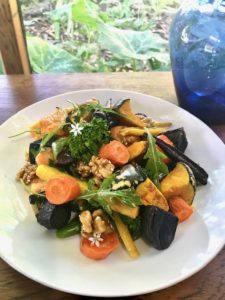Chinese Medicine Dietary Therapy is an important part of Traditional Chinese Medicine, dating back over three millennia.
Using Chinese Medicine dietary therapy, is a delicious and nourishing approach to health that goes beyond just the nutrient value of food. By selecting the right foods for your unique constitution, health concerns, and environment, it can help boost immunity, enhance vitality, and support recovery from illness.

In TCM, food isn’t just about what’s on the plate. It’s about seasonal focus and the energetic properties of food. These are the five flavors—bitter, sour, sweet, pungent, and salty—and the four natures—cool, cold, warm, and hot. In Chinese Medicine these play an important role in balancing your body’s energy.
For instance, in Winter, Chinese Medicine advocates that we focus on protecting and supporting the energy of the kidneys. This often involves heavier nutrient dense foods, root vegetables and cooked, warm foods.

In the recipes section you will find a selection of dishes that are easy to prepare. These are based on seasonal foods and Traditional Chinese Medicine principles and can be easily adapted to suit your needs.
Depending on your TCM diagnosis and presenting health care complaint, I will provide more targeted and individual dietary advice is during your consultation.
Most of the recipes here have a veggie focus and can be easily be modified to suit individual tastes.
